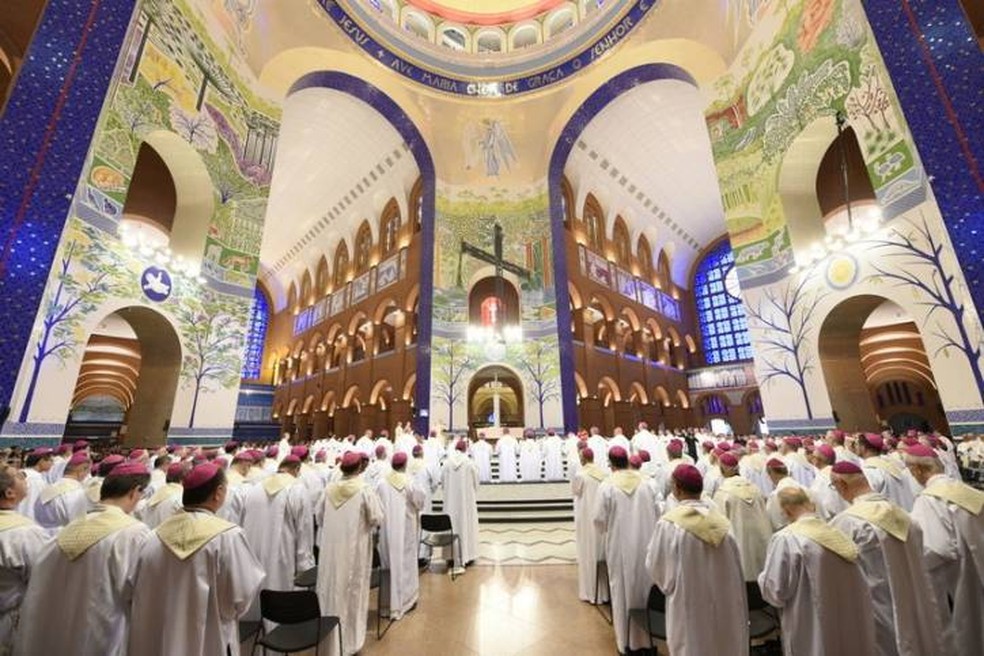By Rhuan C. Soletti
Organizations linked to the Catholic Church in Brazil released on Monday (8) a letter defending the approval of the Bill (PL 2630), known as the Censorship Bill, which is being discussed in the National Congress.
The entities with a clear political bias claimed that “in light of the Gospel,” the new legislation would bring “freedom, responsibility and transparency” to the internet.
“Ensuring transparency in the processes and guaranteeing mechanisms aimed at accountability for malicious content is not censorship, as has been advocated by groups opposed to the project,” the text mentions.

Before discussing the issue, it is worth pointing out which the political-religious entities responsible for signing the letter:
- SIGNIS Brazil Association;
- Pastoral of Communication (Pascom Brazil);
- Grupo de Reflexão sobre Comunicação da Conferência Nacional dos Bispos do Brasil (CNBB) [Reflection Group on Communication of the National Conference of Bishops of Brazil];
- Conference of Religious of Brazil (CRB);
- Observatory of Religious Communication (OCR);
- Núcleo de Estudos Sociopolíticos (Nesp) [Center for Sociopolitical Studies] of PUC Minas and;
- Brazilian Commission for Justice and Peace (CBJP).
To justify the intrusion in an extremely delicate matter, the organizations cited the Pastoral Constitution Gaudium et Spes, n. 4, of the Second Vatican Council and promulgated by Pope Paul VI.
The passage reads: “The Church must investigate at all times the signs of the times and interpret them in the light of the Gospel.”
In addition, the letter’s drafters quoted phrases from the current successor to the chair of Peter, Pope Francis.
“The drama of misinformation is the discrediting of the other, his representation as an enemy, arriving at a demonization that can foster conflicts.”
“In this way, false news reveals the presence of attitudes that are both intolerant and hypersensitive, the only result of which is the risk of expanding arrogance and hatred.” (Pope Francis, Message for World Communications Day 2018).
In addition to all the other activism in favor of the censorship legitimization bill – which is already happening – the drafting members emphasize that the law “does not attack religious freedom.”
According to them, this is the strategy of a group of “extremists” supposedly defending their faith.
Besides, they cite the Federal Constitution to legitimize the approval since religious freedom is already guaranteed.
Well, the problem with censorship is precisely the breaking of the Major Law.
They even consider citing the Federal Constitution Article 88 (CF/88) as the immutable Law and guarantor of our security – instead of the Bible.
“The PL does not attack religious freedom either. Groups claim, in an untruthful way, that with the approval of this Law, they want to curb the religious freedom of churches.”
“This strategy of extremist groups aims only to confuse the debate and spread fear since religious freedom is guaranteed by the Federal Constitution (Article 5, item VIII), and this will not be changed.”
“We affirm that faith should not be used as a tool for manipulation,” they quote in a note.
In the very next paragraph, they contradict themselves, claiming:
“It is important to highlight that the sovereignty of a nation is only guaranteed when the inalienable rights of its citizens are guaranteed.”
The article above rightly states that “no one shall be deprived of his rights on the ground of religious belief or philosophical or political conviction,” rights that are precisely the freedom of speech in item IV.
Isn’t regulating what they may speak a direct attack on freedom?
There are, of course, other interpretations “in the light of the Gospel” based on the words of the Founder of the Catholic Church.
As much as lying is indeed a problem of communication, in Christian terms, we have been given the reassurance of the Creator’s providence since “there is nothing covered up that shall not be revealed, nor hidden that shall not be known.” (Matt 10:26, Mark 4:22, Luke 8:17 and 12:2).
In any case, here is the full text.

